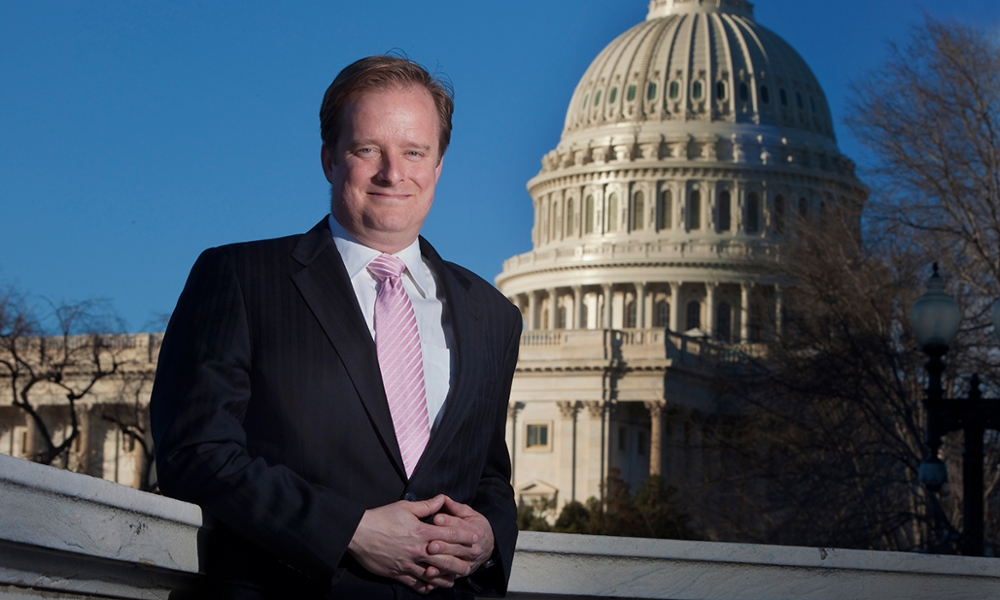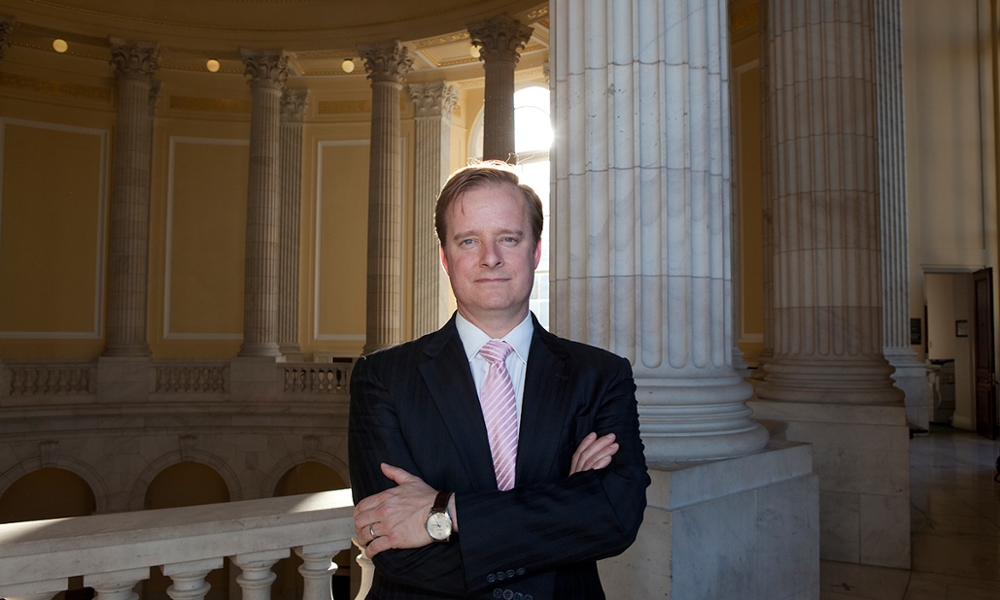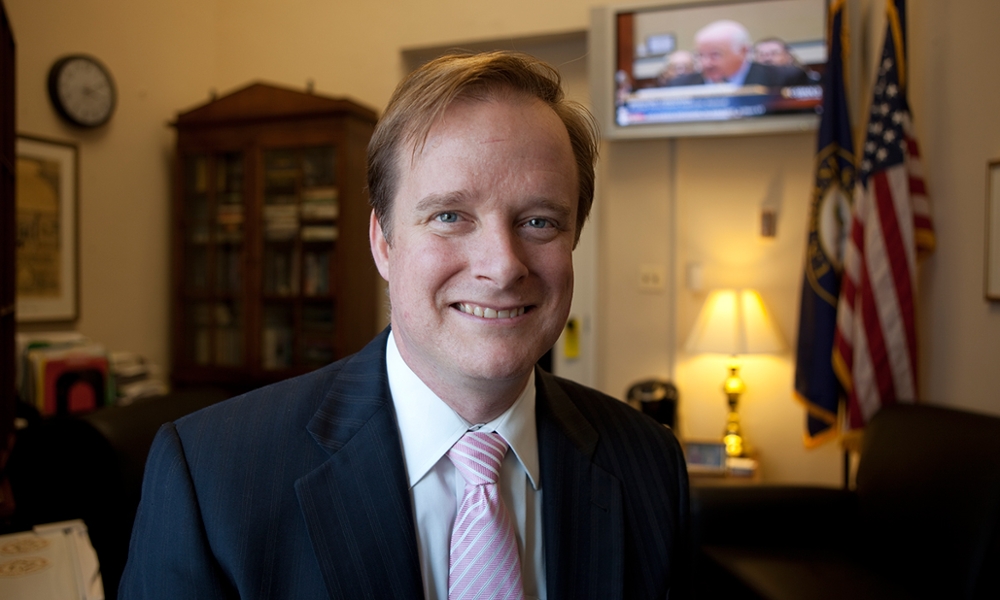JMU inducts U.S. House historian into Phi Beta Kappa
Nation and World
Matthew Wasniewski ('91, '94M) talks about his "non-linear' career track
By R. Eric Wagner (‘12)
JMU will welcome Wasniewski back to campus as the speaker at the Spring 2014 Commencement ceremony.
Story from Spring/Summer 2012 "Madison" magazine.

Phi Beta Kappa Chapter induction
The JMU Phi Beta Kappa Chapter inducted students and noted alumnus Matthew Wasniewski (‘91, ‘94M) in its annual ceremony in March. Christopher Fox, professor of computer science and president of the JMU Phi Beta Kappa Chapter, presided over the ceremony and welcomed 119 new students and Wasniewski to the Xi of Virginia Chapter.
Wasniewski, historian for the U.S. House of Representatives, is only the second JMU graduate inducted into the JMU Phi Beta Kappa Chapter. Constance Neely Wilson (‘70), a board-certified anesthesiologist and founder of Endacea Inc., was the first alum inducted by JMU. Phi Beta Kappa Society is the oldest and most renowned academic honor society in the country. The JMU chapter works to promote scholarship and honor intellectual achievement.
In his keynote, Wasniewski told Phi Beta Kappa inductees to be “open to new things. My career has been very non–linear; if you had asked me 20 years ago what I was going to do my current job would never have come to mind. Networking is extremely important. Put names to faces and get your name out there to boost your career.”
As a freshman journalism major, Wasniewski “found” his passion for history by completing an extra credit assignment. “I came to JMU originally because it had a strong student newspaper and I wanted to write. After declaring journalism, I worked my way up to Breeze sports editor,” he says. “I once wrote about a one–armed fisherman; I really enjoy the people in profiles.”

A passion for history
History was not an idle hobby for Wasniewski. He spent many Saturdays of his youth visiting preserved Civil War battlefields with family. “I grew up next to the Manassas battlefield. On weekends we would go to farm fields and hunt for Civil War bullets,” he recalls. “Holding one in your hand, you realize something big must have happened. That interested me.”
Wasniewski followed his passion for history by switching his major and earning a master’s degree in history at JMU. He completed a Ph.D. in history at the University of Maryland at College Park and later worked as an associate historian for the U.S. Capitol Historical Society.
He has high praise for the JMU Department of History faculty. “Their commitment is to the highest level of education. JMU professors keep long office hours and are always welcoming to new ideas. Several professors had a strong impact on my academic career, including Raymond “Skip” Hyser. He was always a professor you could drop by and just talk to.”
Wasniewski says the JMU history program gives students real career skills. “Our program teaches you to take a lot of information and synthesize it and articulate your findings,” he explains. “I thought I was going to end up a teacher so I did a fair amount of teaching assistantships at College Park.”
Recording the evolution of the U.S. House
His work with a nonprofit Washington, D.C., organization gave him a historical prospective of the U.S. House of Representatives. His current team of nine works on long–term and cyclical projects, but there is always the unpredictable event. “We are a tight group and enjoy recording the events, members and evolution of the lower chamber,” he says.
On Oct. 20, 2011, then–U.S. House Speaker Nancy Pelosi appointed Wasniewski as historian, and he earned resounding support from then–House Republican Leader John Boehner. “Matt’s interest in the history of the federal government and his longtime association with the House make him an excellent candidate, who will find innovative ways to not only help the public be better engaged with their House, but to help members better perform their duties by understanding the history of the House.”
